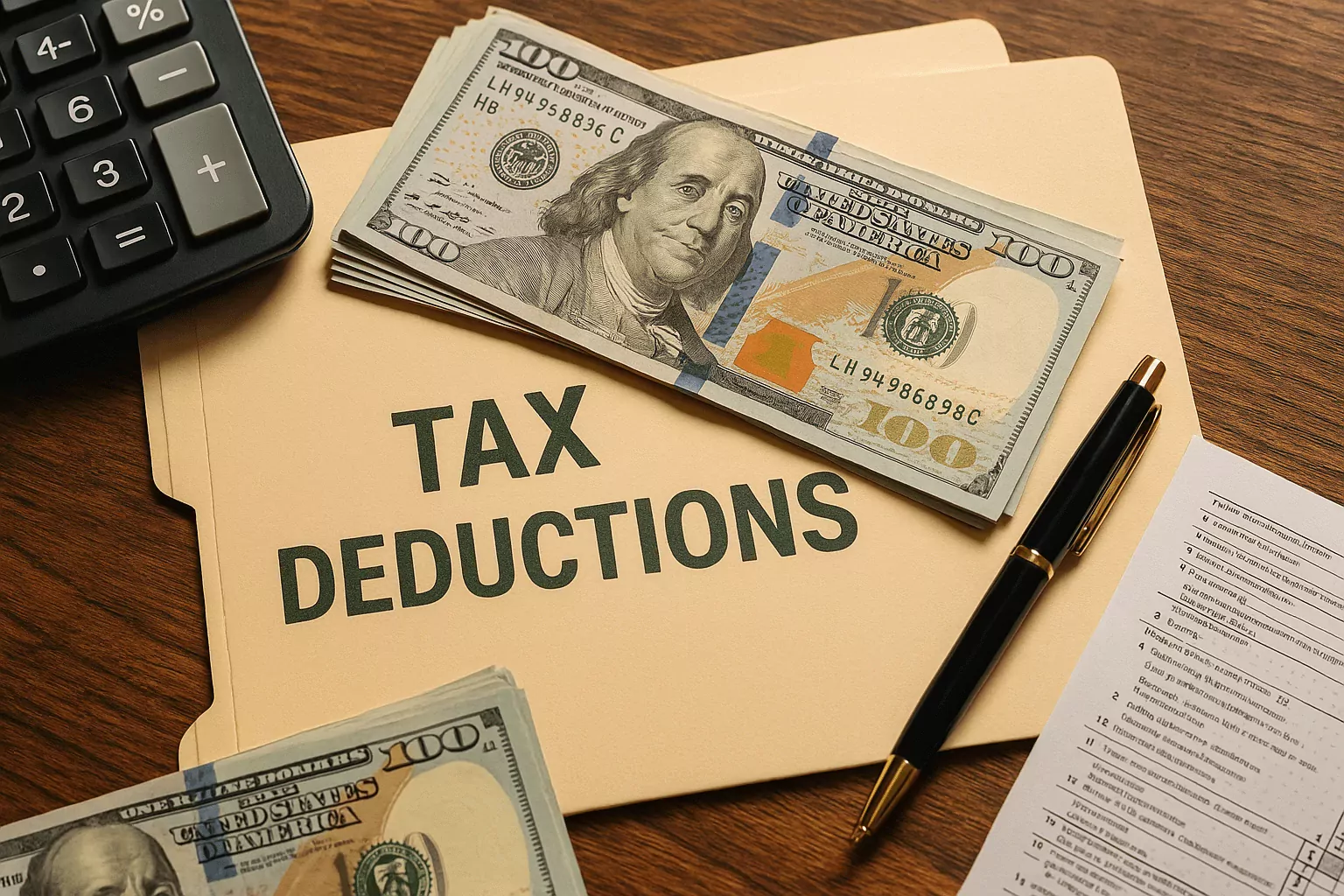Top Tax Deductions You Might Be Missing Out On
Identify Overlooked Tax Deductions to Maximize Refunds for Individuals and Small Business Owners

Introduction
Tax season can often feel overwhelming, with many individuals and businesses searching for ways to reduce their tax liabilities. One effective method is through identifying and maximizing tax deductions you might be missing out on. These deductions can significantly impact your overall tax savings, allowing you to keep more of your hard-earned money. Understanding the various types of tax write-offs available, including lesser-known tax benefits and exemptions, can open up opportunities for substantial savings. In this blog, we will uncover some often-overlooked tax deductions to help you navigate the complexities of tax planning. By taking advantage of these deductions, you can ensure you are not leaving money on the table.
Main Content
1. Home Office Deduction
If you work from home, you may be eligible for a home office deduction. This deduction allows you to write off expenses related to the portion of your home used exclusively for business purposes. Expenses that qualify can include a percentage of your rent or mortgage interest, utilities, and even home repairs. It's important to maintain accurate records of these expenses, as the IRS may require documentation to support your claim.
For example, if you have a dedicated office space that occupies 10% of your home's total square footage, you could potentially deduct 10% of eligible expenses. This can lead to significant tax savings, especially for freelancers and home-based businesses. Many overlook this deduction, but it's a valuable asset in your tax planning toolkit.
2. Medical Expenses
Did you know that certain medical expenses can be deducted from your taxable income? If your medical expenses exceed 7.5% of your adjusted gross income (AGI), you may be able to write off the excess amount. This can include costs for prescriptions, dental care, and even transportation expenses related to medical visits.
Consider a case where an individual incurs $10,000 in medical expenses with an AGI of $80,000. In this scenario, the threshold for deduction would be $6,000 (7.5% of $80,000), allowing the taxpayer to deduct the remaining $4,000 from their taxable income. Understanding what qualifies as deductible medical expenses can lead to significant tax benefits.
3. Charitable Contributions
Donating to charity not only benefits your community but can also provide substantial tax write-offs. If you make contributions to qualified charitable organizations, you can deduct these amounts from your taxable income. This includes cash donations, as well as the fair market value of donated goods.
For instance, if you donated items worth $1,000 to a charity and also contributed $500 in cash, you could potentially deduct a total of $1,500. Keep in mind that proper documentation is essential, and you should always get receipts for your contributions. This is a simple yet effective way to maximize your tax savings while supporting a good cause.
4. Education Expenses
Many individuals may overlook deductions related to education expenses. If you are pursuing further education or have student loan interest, there are tax benefits available. The Lifetime Learning Credit allows you to claim a percentage of qualifying education expenses, including tuition and fees, up to a certain limit.
For example, if you spent $5,000 on eligible educational courses, you might qualify for a credit of up to $2,000. Additionally, you can deduct student loan interest, which can provide further tax relief. Understanding the intricacies of these educational tax benefits can significantly enhance your tax planning strategies.
Conclusion
In conclusion, understanding and taking advantage of tax deductions can lead to significant savings on your tax bill. From the home office deduction to educational expenses, there are numerous opportunities available for both individuals and businesses. By staying informed and seeking professional advice, you can ensure that you are maximizing your tax planning strategies effectively. Don't hesitate to reach out to Premier Tax and Business Services at 314-669-7300 or visit our website at www.premiertbs.com for personalized assistance in navigating your tax deductions and optimizing your overall tax savings.
Frequently Asked Questions
What are tax deductions?
Tax deductions are expenses that you can deduct from your total taxable income to reduce the amount of income that is subject to taxation. They can come in various forms, such as business expenses, personal expenses, or contributions to charitable organizations. Understanding the different types of deductions can help you maximize your tax savings and minimize your overall tax liability.
How do I know if I qualify for a tax deduction?
Qualification for tax deductions typically depends on the type of deduction you are claiming. Each deduction has specific eligibility criteria and rules set forth by the IRS. It is important to keep accurate records and documentation of any expenses you plan to claim. Consulting with a tax professional can also provide clarity on which deductions you may qualify for based on your unique financial situation.
Can I claim multiple tax deductions?
Yes, you can claim multiple tax deductions if you qualify for them. Taxpayers are encouraged to explore various deductions available to them, as this can lead to significant tax savings. However, it is crucial to ensure that all deductions claimed are legitimate and supported by appropriate documentation to avoid any issues with the IRS.

